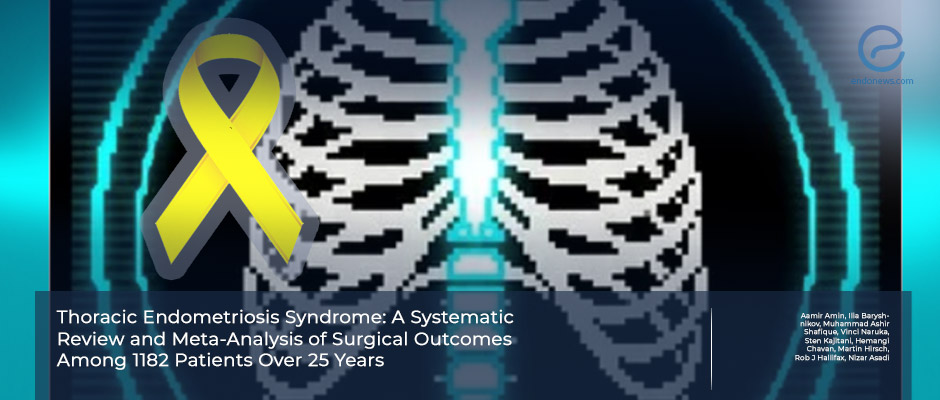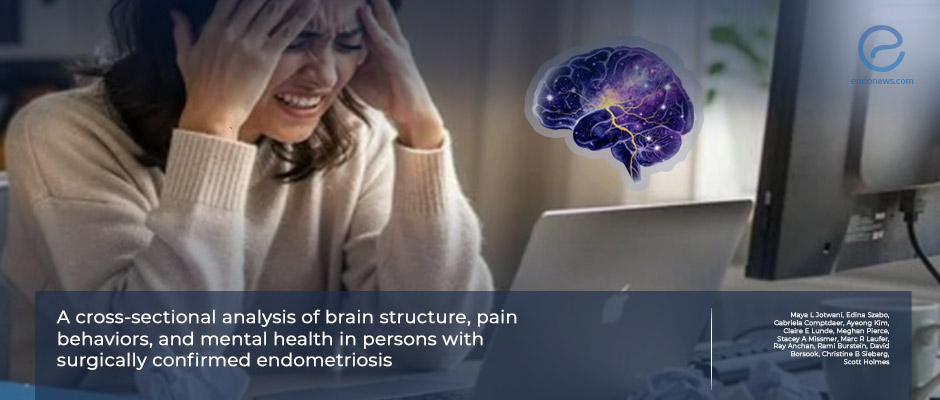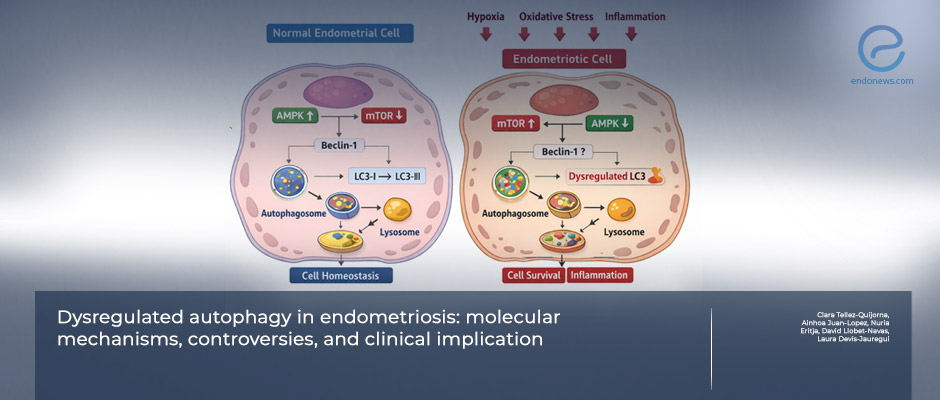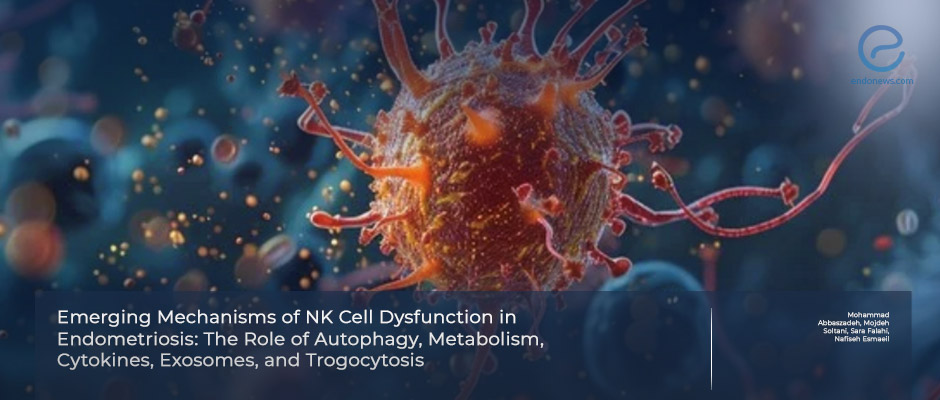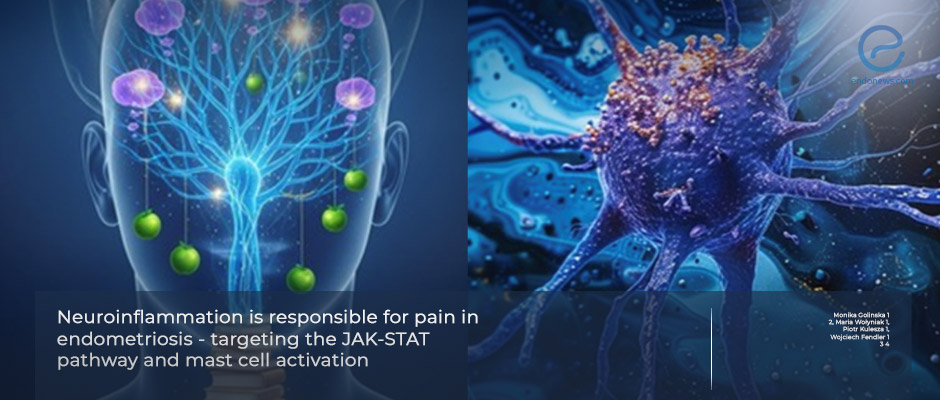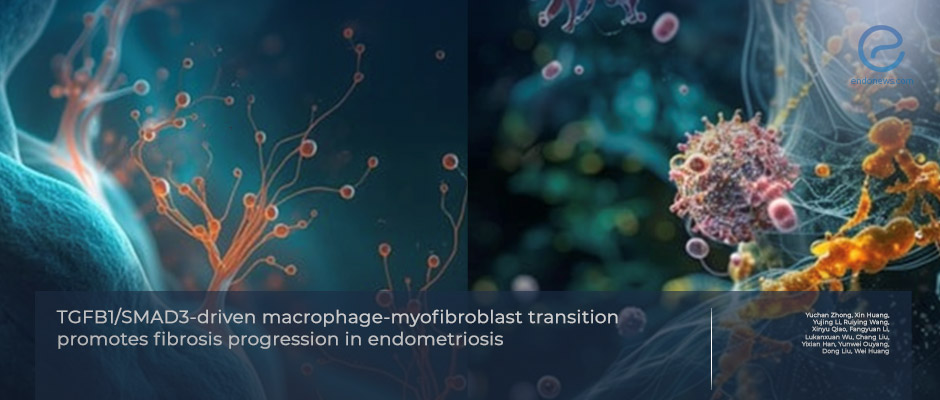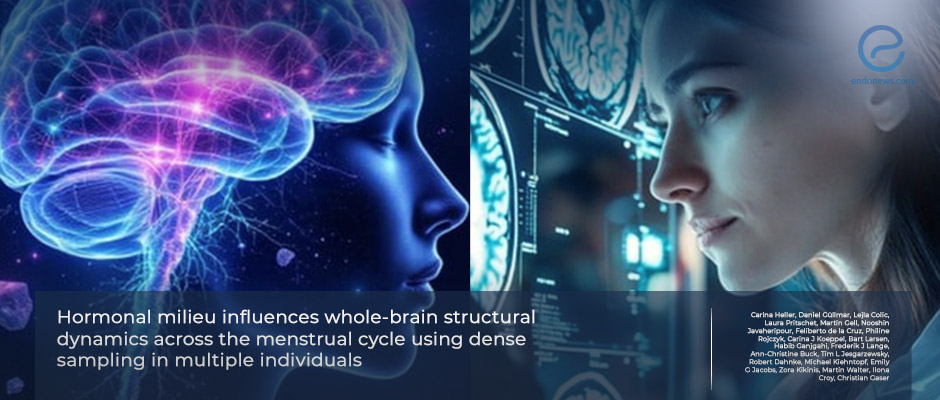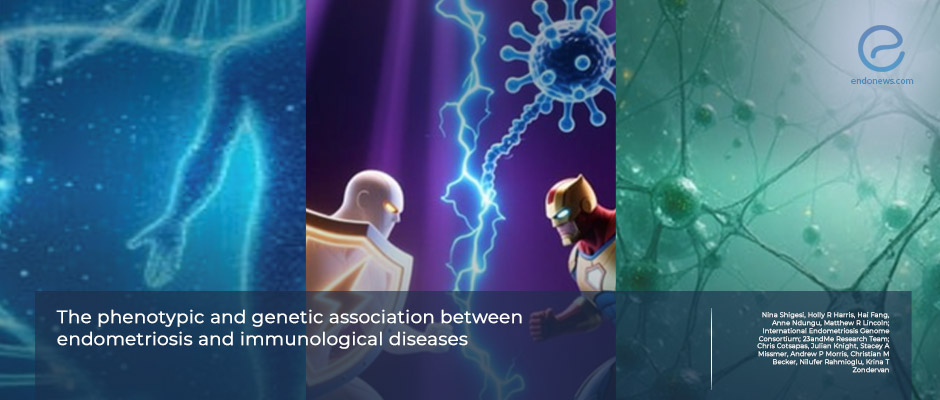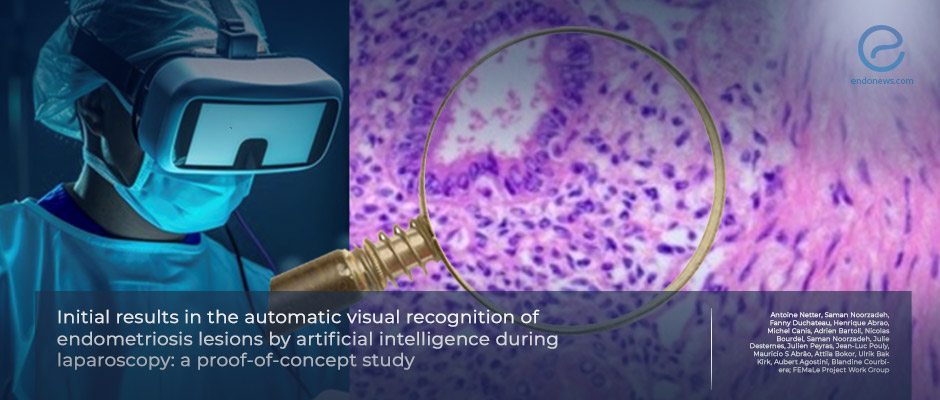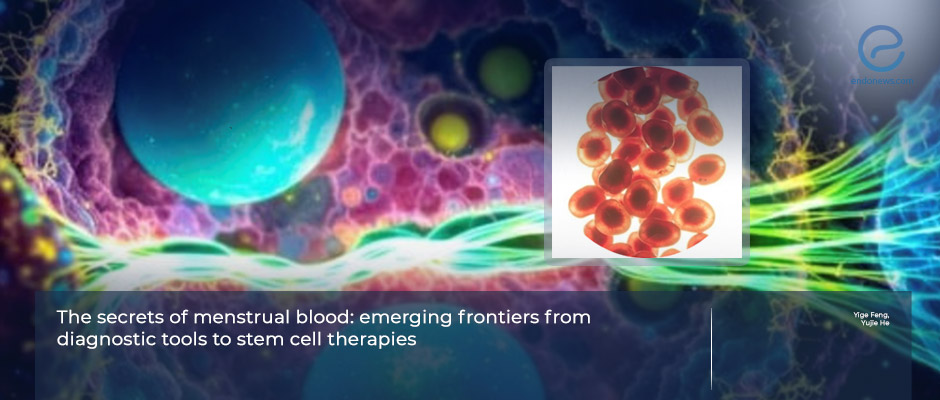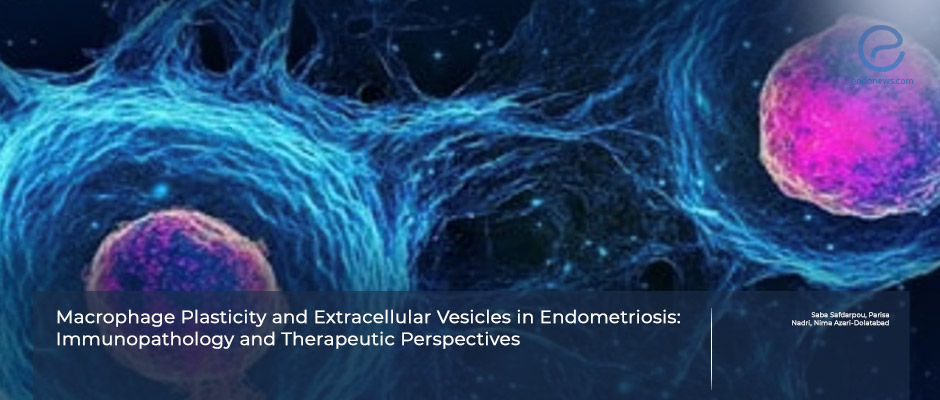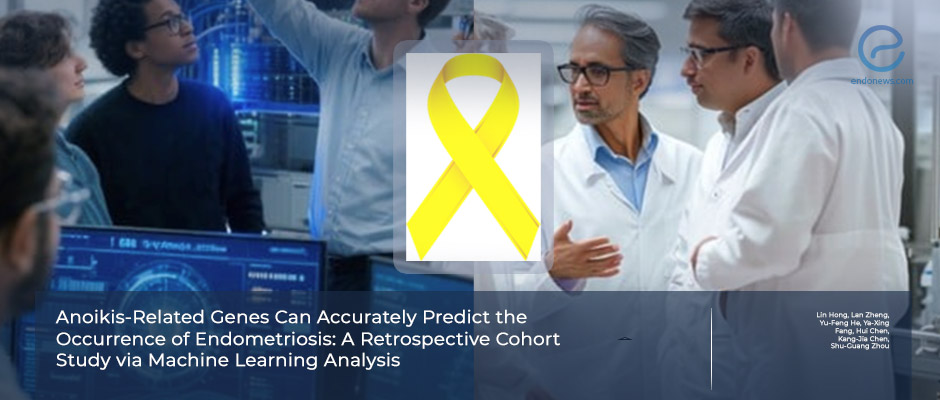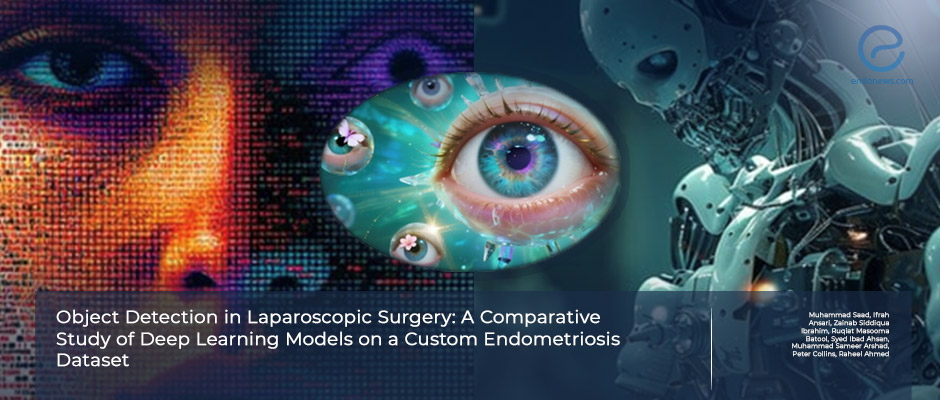 Ayse Ayhan
Ayse Ayhan
Thoracic Endometriosis Surgery: Effective Intervention or Incomplete Solution?
Thoracic endometriosis is a rare and often overlooked form of endometriosis in which tissue similar to the uterine lining grows in or around the lungs and chest cavity. It can cause serious and recurring symptoms, such as lung collapse (pneumothorax), chest pain, coughing up blood, or shortness of breath, often linked to the menstrual cycle. Because of its rarity and complexity, many patients experience long delays in diagnosis and may undergo repeated treatments before receiving appropriate care. In a large…
Key Points Lay SummaryThe Endometriosis–Brain Connection
A study published in Communications Biology (Nature Portfolio), the teaam led by Dr. Scott Holmes at Boston Children’s Hospital and Harvard Medical School, explored whether long-standing endometriosis-associated pain is linked to differences in brain structure, and whether these patterns vary with age. The researchers studied adolescents and adults with surgically confirmed endometriosis and compared them with individuals who had no endometriosis and no pelvic pain. Using advanced brain MRI, they examined brain regions involved in pain processing, movement, and sensory integration, and analyzed how these regions…
Key Points Lay SummaryNutrition and Pain Management in Endometriosis
Many women with endometriosis turn to dietary changes to help manage pain and improve daily functioning, often in the absence of clear clinical guidance. In a narrative review published in Advances in Physiology Education, Dr. Redman and colleagues examine the current evidence linking diet, inflammation, and symptom burden in endometriosis. The authors summarize how endometriosis-related pain is driven by complex interactions among estrogen signaling, immune dysfunction, oxidative stress, and gut-related inflammation. Against this background, dietary patterns with anti-inflammatory properties—most notably…
Key Points Lay SummaryAutophagy dysregulation reshapes our understanding of endometriosis biology
Autophagy is a normal cellular process that helps cells survive stress by breaking down and recycling damaged components. In recent years, this process has attracted growing attention in endometriosis research, as endometriotic lesions are exposed to challenging conditions such as inflammation, oxidative stress, low oxygen levels, and hormonal imbalance. In this review, the authors examine current evidence on how autophagy behaves in endometriosis and whether it contributes to disease development or persistence. Studies from human tissue, animal models, and cell-based…
Key Points Lay SummaryWhy NK Cells Fail in Endometriosis?
Endometriosis persists in the body despite the presence of immune cells that are normally responsible for eliminating abnormal tissue. One such immune cell type is the natural killer (NK) cell, which plays a key role in identifying and destroying cells that appear in the wrong place. This review article, written by a team led by Dr.Esmaeil and published in the American Journal of Reproductive Immunology, examines why NK cells fail to perform this protective role in people with endometriosis. Rather…
Key Points Lay SummaryHow Neuroinflammation Sensitizes Pain Pathways in Endometriosis
A research team led by Dr. Golinska published a study in Frontiers in Immunology exploring why endometriosis can cause such severe and persistent pain, even when lesions appear small or limited on imaging. Their work focused on a biological process known as neuroinflammation—the interaction between inflammatory molecules and nerve fibers within and around endometriosis lesions. Using a validated mouse model of endometriosis, the researchers found that lesions release high levels of inflammatory signals that can “switch on” nearby nerve endings. Over…
Key Points Lay SummaryMacrophages Become Myofibroblasts in Endometriosis Fibrosis
Fibrosis is a major but often underrecognized feature of endometriosis. It contributes to pain, adhesions, impaired endometrial receptivity, and progressive lesion stiffness. Although fibrosis is well documented in both ectopic lesions and the eutopic endometrium, the exact cellular mechanisms driving this process have remained unclear. In this study published in Molecular Human Reproduction, researchers led by Dr. Huan investigated whether a specific cellular transformation—known as macrophage–myofibroblast transition (MMT)—contributes to fibrosis in endometriosis. MMT occurs when macrophages begin expressing myofibroblast markers such…
Key Points Lay SummaryWhole-Brain Dynamics Across Menstrual Hormonal Fluctuations
A new study published in Nature Neuroscience reveals that the human brain changes structurally across the menstrual cycle far more dynamically than previously understood. Using an exceptionally detailed approach—MRI scans every two days across an entire month—researchers mapped how fluctuating hormone levels reshape brain structure over time. The study followed three women representing different hormonal environments: one with a natural menstrual cycle, one with endometriosis, and one using oral contraceptives. By combining ultra-dense imaging with blood hormone measurements, the team…
Key Points Lay SummaryGenetic Overlap Between Endometriosis and Autoimmune Disorders
Women with endometriosis may face a higher risk of developing several immune-related conditions, according to a large study led by Rahmioglu and Zondervan, published in Human Reproduction. Using data from more than 270,000 women in the UK Biobank, the researchers examined whether endometriosis is linked to autoimmune and inflammatory diseases, and whether these connections might reflect underlying shared biological mechanisms. The team found that women with endometriosis were more likely to have conditions such as rheumatoid arthritis, osteoarthritis, multiple sclerosis,…
Key Points Lay SummaryCell-Aging-Related Pathways Linked to Endometriosis Pathogenesis
The biology of endometriosis continues to challenge conventional understanding. While inflammation, hormonal imbalance, and immune dysfunction have long been recognized, this new study explores an entirely different dimension—cellular aging. Researchers from Shanghai Obstetrics and Gynecology Hospital, used a multiomic approach that merged genomic, transcriptomic, and epigenetic data to uncover how aging-related molecular processes might contribute to the disease. Published in Scientific Reports, the analysis drew on extensive public datasets from women with and without endometriosis to identify overlapping molecular patterns…
Key Points Lay SummaryAI-Assisted Vision: Recognizing Endometriosis in Real Time
Artificial intelligence (AI) may soon assist surgeons in recognizing endometriosis during minimally invasive surgery. In a proof-of-concept study published in the Journal of Minimally Invasive Gynecology, Netter and collegues evaluated a deep-learning algorithm designed to visually detect endometriosis lesions on laparoscopic images and videos. The team trained the AI model using surgical footage collected from multiple medical centers, encompassing various presentations of peritoneal, ovarian, and deep infiltrating endometriosis. When tested, the model was able to identify lesions with accuracy comparable…
Key Points Lay SummaryFrom Damage to Hope: IVF and Embryo Science in Endometriosis
Endometriosis remains one of the most challenging causes of infertility, affecting women both biologically and emotionally. In a comprehensive review published in Biology, Dr. Monika Mrugacz and colleagues examine how this disease disrupts fertility at every level: from the health of the oocyte to the complex signaling within the uterus. The authors describe endometriosis as a condition that disturbs the body’s natural reproductive balance through inflammation, oxidative stress, and immune dysfunction. These processes damage the eggs, impair embryo development, and…
Key Points Lay SummaryMenstrual Blood–Derived Stem Cells and Diagnostic Advances
Menstrual blood is usually discarded as waste, but recent discoveries show it may hold extraordinary value for women’s health and medicine more broadly. In a review published in Frontiers in Cell and Developmental Biology in 2025, Drs Feng and He from Shanxi Medical University, Taiyuan, China, highlight the growing body of research demonstrating that menstrual blood contains a rich source of biological information and unique stem cells that could change how we diagnose and treat many conditions. For women with endometriosis, the potential…
Key Points Lay SummaryLaparoscopy Benefits Women With Endometriosis Across All Stages
Endometriosis greatly affects daily life and emotional well-being. Many women experience severe pelvic pain, fatigue, and reduced quality of life. Laparoscopic surgery, a minimally invasive operation that removes endometriosis lesions, is often offered when medications no longer help. In this study, published in the International Journal of Reproductive BioMedicine, Dr.Sadeki from Zabol University of Medical Sciences and Iran University of Medical Sciences followed 50 women with endometriosis who underwent laparoscopic surgery. Half of the women had severe (stage IV) disease,…
Key Points Lay SummaryEndometriosis Immunopathology: The Macrophage Connection
Macrophages and tiny signaling particles called extracellular vesicles (EVs) are emerging as central immune players in how endometriosis develops and persists. Together, they shape the immune environment around endometriotic lesions, helping them survive, spread, and resist the body’s defenses. In a recent review published in the Journal of Ovarian Research, Dr. Azari-Dolatabad from the Department of Biology, Science and Research from Islamic Azad University, Tehran-Iran, and colleagues from Belgium and USA, bring together the latest findings on the crosstalk between macrophages,…
Key Points Lay SummaryNovel Biomarkers for Endometriosis via Anoikis Gene Profiling
Endometriosis is notoriously difficult to diagnose early. Currently, diagnosis often requires surgery, leading to years of delay. A new study published in Biochemical Genetics introduces a potential breakthrough: the use of "anoikis-related genes" — genes linked to a form of programmed cell death that occurs when cells detach from their normal environment. In endometriosis, resistance to anoikis may allow displaced cells to survive and implant in new sites, fueling disease progression. In this study, researchers used machine learning algorithms to…
Key Points Lay SummaryDeep Learning Models for Object Detection in Laparoscopic Endometriosis Surgery
For endometriosis treatment, surgery remains the cornerstone, but its success depends heavily on the surgeon’s ability to detect and completely excise lesions. Some endometriotic lesions can be subtle, hidden, or resemble surrounding tissue, which increases the risk of incomplete surgery and recurrence. In a study recently published in Diagnostics, researchers explored whether artificial intelligence could support surgeons by improving lesion detection during laparoscopy. They developed a custom dataset of laparoscopic images of endometriosis, annotated by clinical experts, and trained two…
Key Points Lay Summary